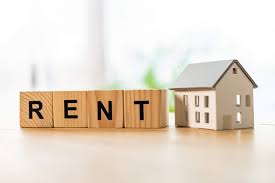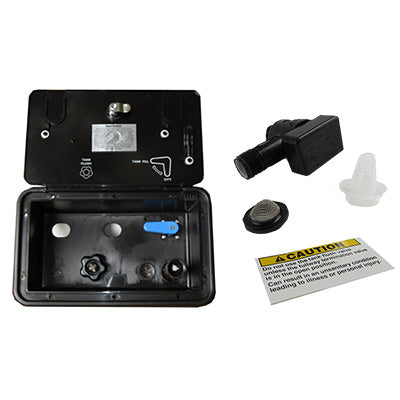The Benefits of Renting: Exploring a Flexible Lifestyle
Renting has become an increasingly popular choice for many individuals and families looking for flexibility in their living arrangements. Whether it’s renting a home, an apartment, a car, or even an RV, the rental market offers numerous advantages that cater to various needs and preferences.
Flexibility and Freedom
One of the primary benefits of renting is the flexibility it provides. Renting allows you to choose the duration of your stay without being tied down to a long-term commitment. This flexibility is especially appealing for those who value the freedom to move around or explore different locations without the constraints of homeownership.
Financial Considerations
Renting can also be a more cost-effective option in certain situations. While owning a property comes with additional expenses such as maintenance, property taxes, and insurance, renting often involves fixed monthly payments that may include utilities or other amenities. This can make budgeting easier and provide more predictability in your financial planning.
Access to Amenities
Many rental properties come with amenities that enhance your living experience. From access to fitness centers, swimming pools, or communal spaces in apartment complexes to fully equipped kitchens and entertainment systems in vacation rentals, renting can offer convenience and comfort without the need for additional investments.
Minimal Maintenance Responsibilities
When you rent a property or vehicle, you are typically not responsible for major maintenance tasks or repairs. Landlords and rental companies are usually tasked with ensuring that the property or vehicle is well-maintained and in good working condition. This can save you time, money, and stress associated with upkeep responsibilities.
Try Before You Buy
Renting provides an excellent opportunity to try out different living arrangements before making a long-term commitment. Whether you’re considering moving to a new city, downsizing your living space, or exploring life on the road in an RV, renting allows you to test the waters and determine what works best for your lifestyle.
Top 9 Essential Questions to Ask Before Signing Your Rental Agreement
- What is the monthly rent for this property?
- Are utilities included in the rent?
- Is a security deposit required when renting this property?
- What is the lease term for this rental agreement?
- Are pets allowed in the rental property, and is there an additional fee?
- How do I submit a maintenance request for issues in the rented space?
- Is renter’s insurance required or recommended for this rental property?
- What are the consequences of breaking the lease early?
- How often does the rent increase, and by how much?
What is the monthly rent for this property?
When inquiring about a property, a common question that arises is, “What is the monthly rent for this property?” This question seeks to understand the financial commitment required to secure the desired living space. The monthly rent serves as a crucial factor in budgeting and decision-making processes for potential tenants. It reflects the cost of occupying the property and plays a significant role in determining affordability and suitability based on individual financial circumstances. Understanding the monthly rent helps individuals assess whether the property aligns with their budgetary constraints and overall housing needs.
Are utilities included in the rent?
One common question that tenants often ask when considering a rental property is whether utilities are included in the rent. The inclusion of utilities can significantly impact the overall cost of living in a rented space. While some landlords may include utilities such as water, electricity, gas, and trash removal in the monthly rent, others may require tenants to pay for these services separately. It’s essential for renters to clarify this detail before signing a lease to accurately budget their expenses and avoid any surprises down the line. Understanding the terms of utility coverage can help tenants make informed decisions about their housing arrangements and ensure a smooth rental experience.
Is a security deposit required when renting this property?
When renting this property, a security deposit is typically required as a standard practice. The security deposit serves as a form of protection for the landlord against any potential damages or unpaid rent during the tenancy period. It is refundable at the end of the lease agreement, provided that the property is returned in good condition and all financial obligations have been met. The security deposit requirement aims to ensure the integrity of the property and promote responsible tenancy practices for both parties involved.
What is the lease term for this rental agreement?
The lease term for a rental agreement refers to the duration for which the tenant is allowed to occupy the rented property. This period is typically specified in the agreement and can vary depending on the landlord’s preferences and the tenant’s needs. Lease terms commonly range from month-to-month agreements to longer-term leases spanning six months or a year. Understanding the lease term is crucial for both parties to establish clear expectations regarding the duration of the tenancy and any associated terms and conditions.
Are pets allowed in the rental property, and is there an additional fee?
One common concern for renters is whether pets are permitted in the rental property and if there is an additional fee associated with having pets. It’s important to clarify this with the landlord or property management company before signing a lease agreement. Some rentals may allow pets with certain restrictions or require an extra pet deposit or monthly fee to cover potential damages or cleaning costs. Understanding the pet policy in advance can help renters make informed decisions and ensure a harmonious living arrangement for both tenants and their furry companions.
How do I submit a maintenance request for issues in the rented space?
Submitting a maintenance request for issues in the rented space is a common concern among renters. Typically, the process involves contacting your landlord or property management company to report any maintenance issues or repairs needed in your rented space. This can usually be done through an online portal, email, phone call, or in-person communication, depending on the preferred method of the property manager. It is important to provide detailed information about the problem and any relevant photos to help expedite the maintenance request and ensure that the issue is addressed promptly and effectively. Effective communication with your landlord or property manager is key to maintaining a safe and comfortable living environment in your rented space.
Is renter’s insurance required or recommended for this rental property?
When considering renting a property, whether an apartment, house, or vacation home, the question of renter’s insurance often arises. While it may not be legally required by landlords in most cases, renter’s insurance is highly recommended for all tenants. Renter’s insurance provides valuable protection for personal belongings in case of theft, damage, or unforeseen events like fires or natural disasters. Additionally, it offers liability coverage in the event that someone is injured on the rented property. Ultimately, having renter’s insurance can provide peace of mind and financial security for tenants in the face of unexpected circumstances.
What are the consequences of breaking the lease early?
When considering breaking a lease early, it is essential to understand the potential consequences that may arise. Typically, breaking a lease before its agreed-upon end date can have financial implications, such as being responsible for paying the remaining rent until a new tenant is found or facing penalties outlined in the lease agreement. Additionally, breaking a lease early could impact your rental history and credit score, potentially making it more challenging to secure future housing arrangements. It is advisable to review the terms of your lease carefully and communicate openly with your landlord to explore possible solutions or negotiate terms if early termination becomes necessary.
How often does the rent increase, and by how much?
When it comes to rental agreements, the frequency and amount of rent increases can vary depending on various factors such as local rental market conditions, state laws, and the terms outlined in the lease agreement. Typically, landlords may increase rent annually or at specific intervals as specified in the lease. The percentage of the rent increase is often determined by factors like inflation rates, property maintenance costs, and demand for rental properties in the area. It’s essential for tenants to review their lease agreement carefully to understand the specifics regarding rent adjustments and to communicate openly with their landlords regarding any concerns or questions about potential rent increases.





I’d like to thank you for the efforts you have put
in writing this website. I am hoping to see the same high-grade blog posts from you
in the future as well. In truth, your creative writing abilities has motivated me to get my very own site
now 😉
Thank you for your kind words! We’re glad to hear that you found our blogarticle inspiring. If you have any questions or topics you’d like us to cover in the future, feel free to let us know. Good luck with setting up your own site! 🏡